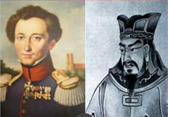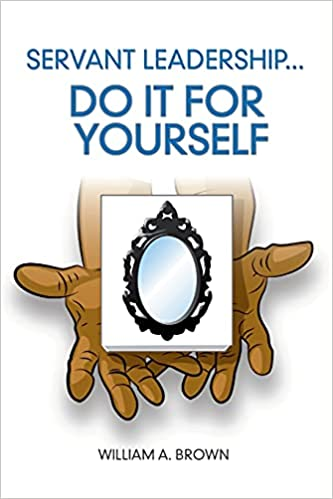Article-Detail

At Work, Pursue Peace, and Shine
About 2500 years ago, Sun Tzu was born in the Qi region of the Zhou Kingdom in ancient China. He grew to be a general in China, a military strategist, writer, and philosopher. He is most well known for writing The Art of War which some say is the best book ever written on war strategy. In The Art of War, General Tzu describes victory and defeat in terms of psychological states. According to him, victory lies in your ability to unsettle the enemy psychologically from harmony (strength) to chaos (weakness). His book describes the way (tao) to put yourself in a position of success and to avoid defeat. “When the general is weak and without authority, when his orders are not clear and distinct, when there are no fixed duties assigned to officers and men, and the ranks are formed in a slovenly and haphazard manner, the result is utter disorganization.”
In The Art of War, the difference between victory and defeat lies with the leader’s ability to know himself, know his army, know the terrain, and know the enemy. The less thoughtful you are about the full picture, the less prepared you are to face the challenge, the more likely you are to be defeated, even routed. Everything starts with leadership and your ability to familiarize yourself with all aspects of your role as a leader. Spend less time admiring your ability to make it into a position of power and more time observing what’s going on around you. Who are the leaders? The people with influence in the organization. Who are the talkers? the people who sound more important than they really are. Who are the doers? The people who have the ability and resources to get things done. What are the challenges? The barriers to success for everyone on the team. Know the lay of the land, create harmony but always be prepared.
Carl von Clausewitz was born in June 1780 in Burg bei Magdeburg in the Kingdom of Prussia of the Holy Roman Empire. He grew to be a Prussian General, military theorist and philosopher. His most notable work, Vom Kriege (On War), was actually unfinished when he died in 1831. His wife collected his work, edited, and published it posthumously between 1832 and 1835. On War has been described as “One of the most important treatises on political-military analysis and strategy ever written”.
According to von Clausewitz, war is a tool used by politicians to reach a political end. The German word ‘Politik’ combines the terms policy and politics, giving the basis of his often repeated expression, “war is not an independent phenomenon, but is the continuation of politics by other means”. He goes on to say that the objective is to disarm the enemy by rendering him politically helpless and, consequently, militarily impotent.” All things being equal, the side with the stronger emotional and political motivations will emerge, especially the defender of others.
Historians have compared Tzu and von Clausewitz and have some ideas on what would've happened if they faced off with all things being equal. This article, instead, focuses on their similarities. Both Tzu and von Clausewitz will tell you that preparation is the most important part of any battle. If you are honest in your assessment, you are trying to achieve something that isn’t related to battle, you just feel that a battle is necessary to achieve it. Both generals would recommend that if there are other methods to achieve your goal, you should exhaust them all before you go to war. People who attempt to make you look bad or undermine you at work always have an objective and a collaborator, usually there are many. If you haven’t completely assessed the situation and know what they are after or who is on the other side, you are not prepared to go into battle. Your ego will tempt you to respond, that will only demonstrate to others that you are easily provoked, a sign of a weak leader. Your job is to demonstrate internal and external control, like you expected it to happen. You can frustrate a saboteur with your patience, and a frustrated saboteur will expose himself.
One of General Tzu’s more famous quotes goes like this, ‘If you wait by the river long enough, the bodies of your enemies will float by.’ There will always be people who play dirty at work, they will undermine you, try to sabotage you and your reputation because they perceive you as a threat to something they have or want. The best move is not to respond to their behavior, both General Tzu and General Von Clousewits would agree that you would be playing into the hands of the opposition. Your objective is to be the very best job you can possibly do. When mistakes are made, own them, learn from them and keep going. Laugh at yourself, do not take yourself too seriously. Expecting yourself to be perfect at everything will cause anxiety that will derail your harmony, your most important tool. It is not on you to expose them or their behavior, dirty players will expose themselves, and just as General Tzu predicted, you’ll see them float on by if you can be patient enough.
Rapper and business mogul, Jay-Z, once said, “A wise man told me don’t argue with fools. Cause people from a distance can’t tell who is who.” When you engage petty people on their level, you don’t appear to be in control, you can’t respond effectively, and others won’t see you as the leader you need to be. It seems counterintuitive, I give you that, but 2500 years of war strategy can’t be that far off the mark. I’ve been on both sides and have seen how it plays out and I’ll take my chances with General Tzu and General von Clausewitz. When you encounter a person who tries to make you look bad, shrug them off and continue shining. Usually it's your shine that threatens them, no one can dim your light but you. Keep shining and SOAR!
William A. Brown
April 12, 2020




